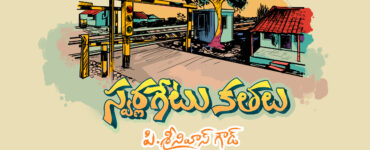Write to Me: Essays on Indian English Poetry
Basudhara Roy
Black Eagle Books, USA/Bhubaneswar, 2024
INR 400/-
Basudhara Roy’s Write to Me: Essays on Indian English Poetry consists of thirty-five short essays on contemporary Indian poets, diasporic poets from India and their creative oeuvre. Often cartographies of poetic minds offer clues for the critics to formulate their critical perceptions. Basudhara also points out the key issues to ask difficult questions regarding current trends in Indian English poetry. Roy tries to explain moments of complications that poets according to her seem to confront during their journey as poets. In the “Introduction”, she points out: ‘Aesthetically, speaking, poetry is under no obligation to make anything happen either in the self or the world”
(13) But true, it is that poetry impacts and that too deeply and at times for centuries, Roy also confesses that “…it [Poetry] needs to be taught more committedly in the Literature classrooms in Indian educational institutions”.
She traces ‘identity’ and ‘home’ as overarching themes in Bhanu Kapil’s collection, ‘How to Wash a Heart’. The collection, on the one hand, delves into a tangible web of relationships to the hosts, adopted daughter, immigrant experience, to her art and several other factors beyond her control that makes her ‘identity’ vulnerable. On the other hand, ‘home’ becomes a signifier and loses its stability to become a sort of infirmary. In support of the argument Roy quotes from Bhanu Kapil:
The art of crisis
Is that you no longer
Think of home
As a place of social respite. Instead, it’s a ledge
Above a narrow canyon. (25)
These lines also bring forth the poet’s existential crisis.
If one cares about vital harmony that allows life on the planet, if one values dignity for all living beings if one desires to enjoy an honest, voice, gemmed with fresh images, then Roy’s essays: “In a Burning Tongue: Soz’s Masculinity Digs a Grave over My Body”, “Cartographies of Identity: Anita Nahal’s What’s Wrong With Us Kali
Women?” and “On the Grave Business of Poetry: GJV Prasad’s This World of Mine: Selected Poems” will be valuable. Roy’s take on Soz’s poetry is that “…the unique truth of one’s corporeality must be lived out and through every moment of each day” (55). Basudhara takes into account Jay Prosser’s post-structuralist notion that “… bodies are everywhere in contemporary cultural theory; yet the paradox of theory’s expatiation, upon bodies, is that it works not to fill in that blind spot so much as to enlarge it” (55). Soz’s, poems in Masculinity Digs draw attention to the fragility of ‘home’ and its vulnerability. Roy quotes:
what of violence, which is another word for home,
unnamed violence like unnamed files stored on the desktop we do not delete, unquestioned violence
like unquestioned silence that waits to be a ceiling that needs to be broken
… …. ….. ……
we do not notice, the leakages, we do not repair
unless the water leaks… (61)
It is a compassionately composed poem. Roy points out: “It rarely comes without great, agonising and critical self-scrutiny but once it does, the poem becomes a space for healing.” (61) The essay, “Cartograph of Identity Anita Nahal’s What is Wrong With Us Kali Woman?” is full of compassion and intelligence. Admirably, Nahal lets her heart lead as she explores expansive territories and the gentleness of her spirit. One such moment appears in her poem, “Maryada and Modern Draupadi’:
I want to feel special when I lay down unforgettable, so I choose to be me. A Woman. Earthy and sensual.
And again in “Sleepless Nights”:
I try to reassure the pawns and the elephants that the mounts are being tended to, but one game of chess gives me away. I don my royal clothes and try to appear majestic as I stride to fears for my healing armies, but sleepless nights, don’t let go…(64).
A sense of being held and witnessed extends to the readers and makes this selection unique for Nahal and for Roy to expand the limited notion of “us” with resolve and empathy. ‘On the Grave Business of Poetry: GJV Prasad’s: This World of Mine: Selected Poems’ is an essay in which Roy asserts, “…the poems in this collection are unapologetically political, whether it is fanaticism fundamentalism, sexism, communalism, post- colonialism, feminism or more…”(72). Roy does feel the idea behind the poems is compelling and somewhat large in scope. Prasad attempts to make connections across generations and decades in ‘Desperately Seeking India’. He says:
I promise, Never
To mention India again,
…. …..
perhaps
there is a lesson in the dark, you hold hands
when you can’t see
with people
you don’t know and come together as a world.
Besides Soz, Anita Nahal and GJV Prasad, other poets included in the volume are Nishi Pulugurtha, Nitoo Das, Shyamal Kumar Pramanik, Soni Somranjan, Gopal Lahiri, Kala Ramesh, Kalki Subramaniam, Kavita Ezekiel, Kunwar Narayan, Paul Kaur, Ram Krishna Singh, Sanjukta Dasgupta, Shekhar Banerjee, Smita Agarwal, Usha Akella, Abhay K, Afsar Mohammed, Bina, Jaydeep Sarangi, Kashiana Singh, Nilim Kumar, Oindri Sengupta, Pramila Venkateshwaran, Sukrita Paul Kumar, Vinita Agarwal, Kuhu Joshi, Malashri Lal, Mitali Chakravarty, Prerna Gill, Robin Ngangom and Sanket Mhatre.
As an experienced critic, interpreter of poetry and poet herself, Basudhara gives depth to her essays through meaningful questions. The readers are caught by many of her observations. John Thieme, from the University of Angelia, in praise of the book points out that Roy has, “…the critically incisive eye of an academic with the emotive directness of a poet… collectively they [the essays] demonstrate many of the strengths that lie at the heart of the current, upsurge of Indian Poetry in English”. Thus, Roy’s voice as a poet is sought since it is full of wisdom and generosity.
*









Add comment